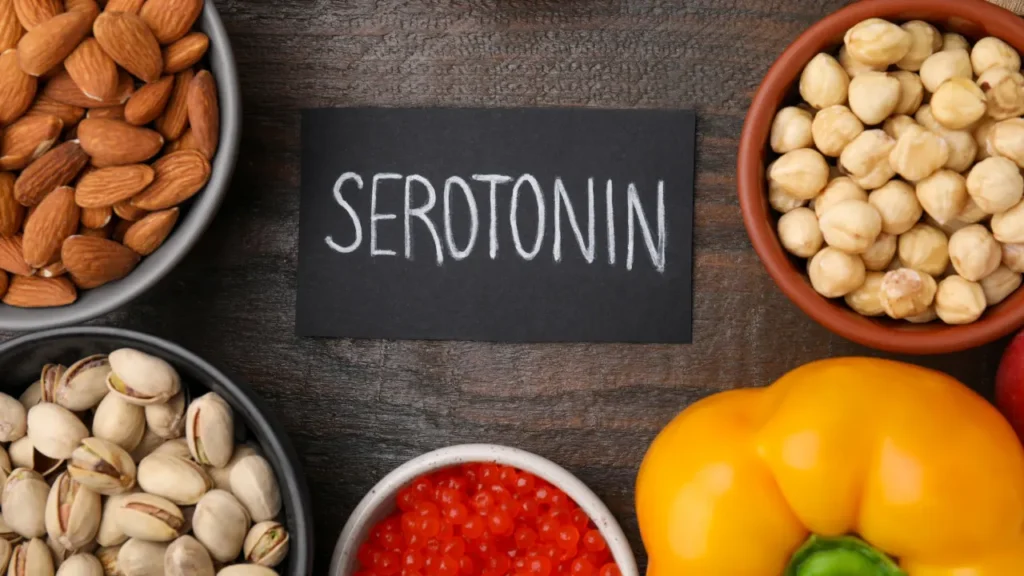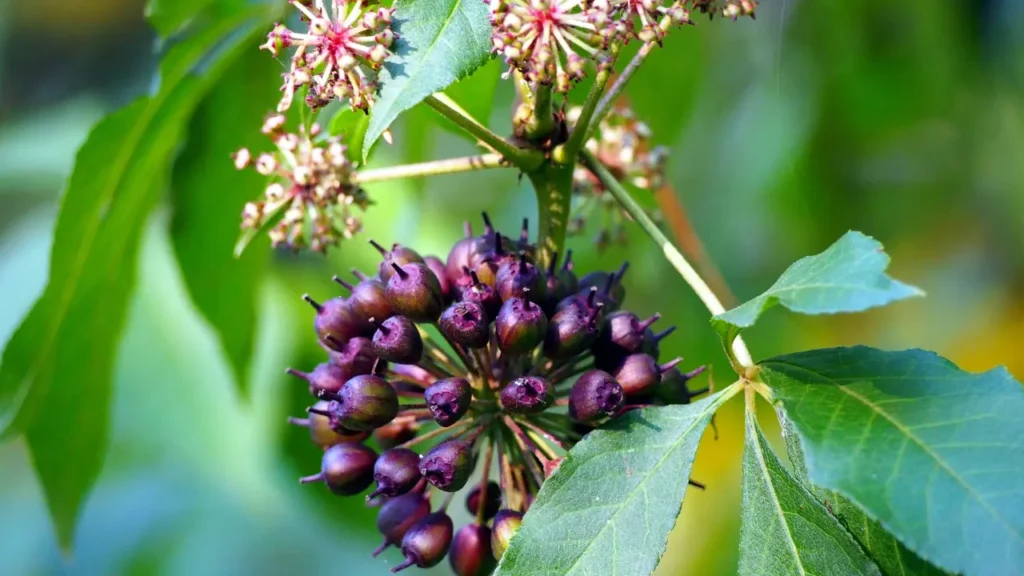When it comes to herbal medicines that are intended to improve cognitive abilities, Siberian ginseng is getting a lot of attention. This in-depth analysis explores the botanical essence, health advantages, ideal dosages, adverse effects, drug interactions, and essential details for the responsible use of Siberian Ginseng, particularly for individuals who are eager to enhance cognition.
You May Also Like:
CBD for Concentration: 3 Epic Benefits that Boost Your Focus
CBD for Concentration: The Productivity Hack for Energy and Focus
Siberian Ginseng: Benefits, Dosage, Side Effects, Drug Interactions, and Other Important Information is an original (NootropicsPlanet) article.
Nature of Siberian Ginseng
Siberian ginseng, has a scientific name of Eleutherococcus senticosus. It has been used traditionally in areas of Asia and Russia for its adaptogenic qualities, despite being different from real ginsengs like Panax ginseng. Compounds called adaptogens in this plant are known for helping the body fight off chemical, biological, or physical stress. Syringin, eleutherosides, phenylpropanoids, polysaccharides, and lignans are just a few of the many bioactive substances found in Siberian ginseng roots that work together to provide various medicinal benefits.
Health Benefits of Siberian Ginseng
Siberian ginseng has numerous physiological advantages in addition to its nootropic effects. Numerous studies have been conducted on this adaptogenic herb to fully understand its potential benefits for human health. Here, we explore the specific health advantages of Siberian ginseng, emphasizing its effects on energy levels, immune system function, stress resilience, mental performance, and general well-being.
Mental Performance and Cognitive Function
Memory, focus, and mental clarity are among the cognitive abilities that can be improved by Siberian ginseng. Its nootropic benefits are especially helpful for people whose cognitive function is declining as a result of stress or aging. It assists with tasks requiring prolonged mental effort by enhancing attention and concentration through the modulation of neurotransmitter activity. Furthermore, by lessening the negative effects of stress on the brain and boosting the brain’s resilience to outside stimuli, its adaptogenic qualities promote cognitive health.
Stress Resilience
The adaptogenic property of Siberian ginseng also increases the body’s capacity to withstand stress. The body’s stress response system is primarily controlled by the hypothalamic-pituitary-adrenal (HPA) axis, which is modulated by this substance. It can lessen anxiety and stress symptoms by controlling stress hormones like cortisol, which promotes a more stable emotional state. This adaptogenic impact increases the body’s tolerance to biological and environmental stimuli while also assisting in the management of physical and mental stress.
Immune System Support
Siberian ginseng has a major impact on boosting immune system performance. Its immune-stimulating qualities aid in boosting the immune system and enhancing the body’s defenses against illnesses and infections. It has been demonstrated that the polysaccharides and eleutherosides present in Siberian ginseng stimulate the function of lymphocytes and natural killer cells. This makes it a useful complement for people with weakened immune systems or during the cold and flu season.
Energy and Endurance
Siberian ginseng also gives you a longer prolonged energy boost than stimulants, which cause an energy spike followed by a crash. It boosts the synthesis of ATP and improves oxygen consumption, both of which are essential for energy metabolism. This effect can improve physical performance and lessen weariness, which is especially advantageous for athletes and those involved in physically demanding tasks.
Cardiovascular Health
Siberian ginseng has shown promise in promoting heart health and circulation, among other cardiovascular advantages. Because of its antioxidant qualities, it can help lower oxidative stress, which is a major contributor to the onset of cardiovascular illnesses. Siberian ginseng may also help to lower blood pressure and cholesterol, which will improve heart health in general and lower the risk of heart disease.

Chemistry of Siberian Ginseng
Siberian ginseng is a derivative species of ginseng distinguished by its distinct combination of bioactive chemicals and rich and diversified chemical makeup. Eleutherosides, which are glycosides that come in a range of forms from eleutheroside B to E, are the main ingredients accountable for its medicinal qualities. Because of its adaptogenic properties, eleutherosides B (syringin) and E stand out the most among the others.
Siberian ginseng also contains a range of other chemicals, including lignans, polysaccharides, and phenylpropanoids, in addition to eleutherosides. Its antioxidant qualities are enhanced by phenolpropanoids, which include derivatives of caffeic acid and provide defense against cellular deterioration. Siberian ginseng’s polysaccharides are linked to immune system regulation, which strengthens the body’s defenses against stress and illnesses. Hepatoprotective properties of lignans, such as schisandrin, protect the health of the liver and aid in the body’s detoxification processes.
The combination of these substances increases the adaptogenic potential of Siberian ginseng. Its capacity to regulate stress responses, guard against oxidative stress, and promote general physical and mental well-being is largely dependent on its intricate chemical makeup.
Physiological Mechanism of Action of Siberian Ginseng
Siberian ginseng’s physiological activity is mainly attributed to its adaptogenic qualities, which help the body better tolerate and adjust to stressful situations. The primary stress response system of the body is known as the hypothalamic-pituitary-adrenal (HPA) axis. Siberian ginseng lessens the physiological effects of stress by regulating the HPA axis, which in turn helps control the release of stress hormones like cortisol.
Furthermore, the active ingredients in Siberian ginseng, especially eleutherosides, interact with the brain’s neurotransmitter systems. They are believed to improve cognitive abilities by adjusting neurotransmitter levels, such as dopamine, serotonin, and norepinephrine. Siberian ginseng’s ability to enhance focus, cognition, and mental vigor can be explained by the critical functions these neurotransmitters play in mood, attention, and alertness regulation. Siberian ginseng promotes not only stress resilience but also cognitive function and general brain health through these diverse effects.

Optimal Dosage of Siberian Ginseng
Age, health, and particular cognitive objectives are among the many variables that influence the dosage of Siberian ginseng used for cognitive enhancement. Studies often use doses of Siberian ginseng extract ranging from 300 to 1200 mg per day and it is usually split into two or three doses. In light of the wide variations in supplement formulas, it is essential that you speak with healthcare providers to create a customized dosing schedule.
Side Effects of Siberian Ginseng
Short-term usage of Siberian ginseng is generally regarded as safe, with moderate side effects such as headache, dizziness, and gastrointestinal disturbances being typical. However, there is a lack of long-term safety data, and continued use may lead to negative effects. There is also insufficient safety data for people with autoimmune illnesses, those on blood pressure or blood sugar medications, or those who are pregnant or nursing. If you are one of them, you should use extra caution when deciding on the use of Siberian ginseng.

Substance Interactions of Siberian Ginseng
It is important to carefully assess any potential interactions that Siberian ginseng may have with other substances, especially medications. Siberian ginseng may change how some medications are metabolized, which could increase or decrease the effectiveness of such medications. Siberian ginseng should not be combined with other medications without first consulting a healthcare provider because of its notable interactions with immunosuppressants, anticoagulants, and anti-diabetic drugs.
Best Responsible Use and Recommendations
Adhering to appropriate usage is crucial for anyone hoping to get the nootropic effects of Siberian ginseng. To maximize cognitive advantages while reducing risks, this means following suggested dosages, being aware of possible side effects and interactions, and thinking carefully about when to take supplements. Moreover, it is imperative to source Siberian Ginseng from reliable suppliers who offer clear details on extract standardization, considering the variation in supplement quality.
Siberian Ginseng:
Conclusion
Siberian ginseng differs from the regular ginseng that everyone knows about. Siberian ginseng is known scientifically as Eleutherococcus senticosus and this plant has been widely used in traditional medicine. It is believed that Siberian ginseng can improve mental performance. Its cognitive enhancing quality comes from the specific properties of Siberian ginseng in reducing oxidative stress in the brain. However, there is a lack of studies on the specific function of Siberian ginseng which is improving cognitive health. If you want to use Siberian ginseng as a nootropic supplement, you have to seek personal medical advice from your doctors and do some checkups before proceeding with supplementation. As for any supplements, there are potential risks and benefits that it sells.

References:
- Effects of Siberian ginseng (Eleutherococcus senticosus maxim.) on elderly quality of life: a randomized clinical trial. Retrieved from: https://pubmed.ncbi.nlm.nih.gov/15207399/
- Vascular effects of Siberian ginseng (Eleutherococcus senticosus): endothelium-dependent NO- and EDHF-mediated relaxation depending on vessel size. Retrieved from: https://pubmed.ncbi.nlm.nih.gov/15095033/
- Siberian Ginseng Capsule – Uses, Side Effects, and More. Retrieve from: https://www.webmd.com/drugs/2/drug-735/siberian-ginseng-oral/details
Important Note: The information contained in this article is for general informational purposes only, and should not be construed as health or medical advice, nor is it intended to diagnose, prevent, treat, or cure any disease or health condition. Before embarking on any diet, fitness regimen, or program of nutritional supplementation, it is advisable to consult your healthcare professional in order to determine its safety and probable efficacy in terms of your individual state of health.
Regarding Nutritional Supplements Or Other Non-Prescription Health Products: If any nutritional supplements or other non-prescription health products are mentioned in the foregoing article, any claims or statements made about them have not been evaluated by the U.S. Food and Drug Administration, and such nutritional supplements or other health products are not intended to diagnose, treat, cure, or prevent any disease.


